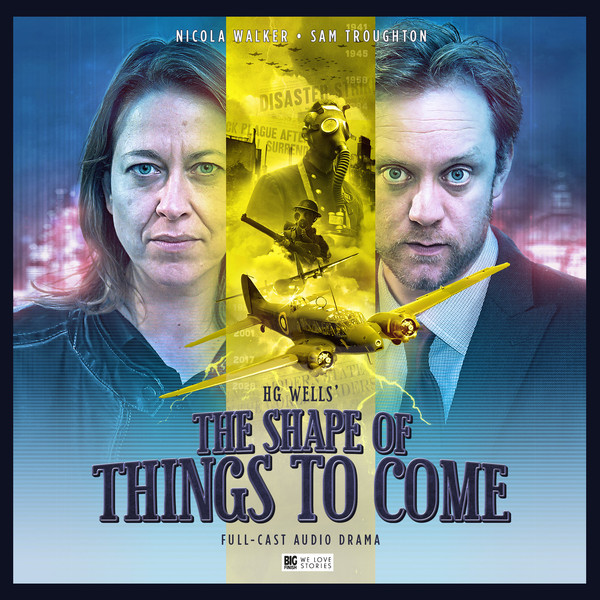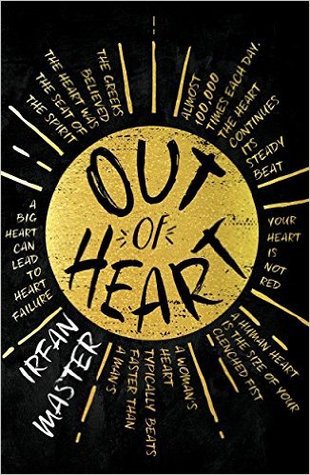τέλος • (télos) n (genitive τέλεος or τέλους); third declension
completion, accomplishment, fulfillment, perfection, consummation
The Whoniverse is wide, and rich, and crazy.
And sometimes, bits of it go overlooked. There’s no way around it, we, at DoWntime, are children of the New Series. Our cultural sensibilities and our tastes in Who have been shaped by it. And of course, when we’re embarking in the big task of producing Discourse, we naturally tend to tackle recent events, controversies and stories. But that doesn’t mean the twenty-six seasons of Classic Who are undeserving of some in-depth coverage – and what better way to deliver said coverage than to watch it.
ALL of it. In order. Without skipping anything.
We’re looking for our telos, and it starts now.
EPISODE 1: “THE SPACE MUSEUM”
TIBERE: We’re almost out of Ian and Barbara. The world is a cold, sad, sinister place. Oh well, at least we open on some pretty model shots, I guess that’s a compensation! The still shot on the actors not moving while the TARDIS materializes is an odd directorial change to say the least, though. Although, Vicki and Ian noticing that their clothes have changed is a cool bit. You don’t really get all that many scenes about the TARDIS routine, the bother it must be to change clothes at every stop!
SCRIBBLES: And some downright weird TARDIS interior shots, the whole crew staring, bizarrely. “Doctor, we’ve got our clothes on.” “Well, I should hope so, dear boy.” Off to a very fun start, strange and humorous.
TIBERE: I mean, I can think of a few serials that would be improved by William Russell’s naked butt. “The Web Planet”, for starters. Oooooh, damn, that shot of a glass of water breaking and then reforming in Vicki’s hands is a brilliant bit of surrealistic imagery – reminds me of “The Edge of Destruction”.
SCRIBBLES: I’ll be honest: this serial isn’t very well regarded, but I love it, and prefer it vastly to “Edge”.
TIBERE: I mean, so far it’s already much, much better than the last two combined. Which is admittedly a low bar, but you know.
SCRIBBLES: There’s some nice subtle character details here. I like Barbara pointing out so calmly and easily that the readings aren’t everything. She and Ian have really mastered TARDIS life, to the point where calling out the Doctor is easy second nature. I hate to see them go, but they’ve certainly reached their highest point.
TIBERE: I suppose it makes sense for their penultimate serial to be about a museum – they’re wondering through a place of history, through a narrative, before exiting it.
SCRIBBLES: A space museum, no less. The first season was all structured around juxtaposing historical and future adventures. A space museum conceptually is both in one place.
TIBERE: Oh, the twist about not leaving any sort of footprints in the planet’s dust is really rather brilliant. Kind of reminds me of the stuff Steven Moffat will throw at the viewer a lot, many years later – think of the Aplans in “Time of the Angels”. I love that kind of little misdirection, be it only because it creates really good dynamics within the scenes, a sense of energy and unpredictability.
SCRIBBLES: A nice tense moment there, too, with Vicki sneezing as guards pass. Having them not even react is a great way of getting out of one predicament into an even more intriguing one. Which is fortunate, because those guard costumes are as camp as it gets.
TIBERE: They look like back-up singers for the Village People that were subsequently fired for overdoing it. And ooooh, we get a Dalek. That’s an absolutely fantastic reveal, that – I think that might be the first time the show plays on its own history to create a sense of misdirection, to playfully manipulate its past. Also, beyond just being a clever twist, there’s a lot of cool character moments baked in that scene, with Vicki’s usual curiosity and fascination for monsters kicking in (she thinks they look ‘quite friendly!’), and the way the characters experience time in different and singular ways.
SCRIBBLES: You mentioned how a museum offers that kind of metafictional reminiscing on their adventures. You were right. That’s totally what this is. It’s a serial built around reflecting on serials of the Ian and Barbara era. I love how it basically makes Vicki a former viewer, talking about how the Daleks don’t look in person like she imagined. This is extremely meta.
TIBERE: And really good, so far at least.
SCRIBBLES: “A matter of putting two and two together to make three.” Oh, Doctor, never change. This is a very witty and clever script. I love how we’re seeing ridiculous meta ideas alongside charming humor in this. I mean, the TARDIS, a museum exhibit! What an inspired moment.
TIBERE: Oh, damn, the reveal of our main characters being themselves exhibits, their bodies frozen and put under glass, is really excellent – the direction really sells the twist, the soundscape doesn’t oversell the moment, and it’s honestly kind of disturbing. A big old dive in the Uncanny Valley.
SCRIBBLES: And so meta. They’ve always been something on exhibition. That’s their existence as characters in a TV series. But now they see that veil lifted themselves. Brilliant.
TIBERE: Characters as characters – incapable to act, only shaped by outside forces, the pen of the writer, the eye of the viewer.
SCRIBBLES: God, this is ahead of its time.
TIBERE: It’s doing timey-wimey before timey-wimey was even a word – the characters are waiting for their counterparts of the main timeline to arrive in the museum to prevent the events that drew them to the museum in the first place.
SCRIBBLES: I like, too, that the Doctor’s first instinct is to change the future. That’s not something you’d see now. As the show has grown upon itself, it has become more and more obsessed with saying you can’t change the future. But here, whatever was said in “The Crusade,” the Doctor automatically chooses to interfere in his own timelife to save himself.
TIBERE: One really is an acerbic, witty, rebellious teenager, when you get down to it – in open rebellion against the laws of time and the culture of his planet – not that this was part of the text at the time, of course, considering the very alien-ness of the Doctor was left fully and utterly ambiguous. Still, his characterization clicks wonderfully even know, with our modern New Whovian lenses.
SCRIBBLES: God, the montage that follows is quite modern and breathtaking. Not the same level as the “breaking the wall” stuff in Heaven Sent, but the fact that the show is using similar techniques like that this early on! That’s amazing.. The classical music playing as their impacts in this world, everything this first episode has taken place before, falls into place is such a distinctive and wonderful choice. That’s remarkably modern and makes for quite a majestic climax.
TIBERE: I for one am hooked.
EPISODE 2: “THE DIMENSIONS OF TIME”
TIBERE: Well hopefully that episode doesn’t have anything in common with “Dimensions in Time”.
SCRIBBLES: Well, if you listen to the fandom, they have the same quality level. But I love both.
TIBERE: Since when did we start listening to the fandom, really?
SCRIBBLES: When we praised “Dalek Invasion of Earth,” I expect.
TIBERE: I assumed that praising it as glorious communist propaganda separates us from the consensus enough, though. Come for the action, stay for the agitprop.
SCRIBBLES: Did we really say that?
TIBERE: I may be exaggerating. Slightly. Anyway – we get some scenes with the population of the planet, who are … Well, not all that fascinating so far, with their bureaucratic society and their very Star Trek-y cheap costumes. Still, some nice themes, with the opposition of youth and elders – it ties back with this idea of the passage of time, the experience of history, especially when it’s centered around a potential revolution (which is an important historical event, and also continues the themes developed earlier in the series, most notably with “Dalek Invasion of Earth” and “Planet of Giants”)
SCRIBBLES: Rob Shearman famously defended this stuff as postmodern, with the weaker aspects being deliberately so. Rob Shearman is a genius.
TIBERE: I can definitely see why he likes it. The superposition of stuff like the crew’s duplicates under glass with very fun bit of comedy like Ian playing with a space gun (even making mouth noises, daw, bless him) has a very Shearman-esque feel – he’s well-known for the way he mixes comedy and horror, fun and grotesque. God, you weren’t kidding about the modern feel of the serial – stuff like Ian’s number of shirt buttons potentially indicating whether they have changed timelines is something you would totally find in a modern Who episode. It’s in “Before the Flood”, for instance, with the Doctor’s coat getting scratched at some point.
SCRIBBLES: I love all this group banter, it’s so phenomenal. Ian gently calls out the Doctor, and the Doctor just agrees! God, that’s come so far. And through it all, Vicki takes charge, which is adorable and sweet. She’s so confident and in control in this postmodern museum of the show’s own adventures. I suppose it makes sense. She’s the first companion to choose this life. This is what she loves. She’s a character who makes monsters pets and longed off getting off one little planet from the beginning. Of course she can find her way back. And when everyone’s panicking about where the Doctor could have gone, she immediately works out he’s been captured with ease. She’s genre-savvy, that’s what she is. She understands the basic grammar of these adventures to recognize when she’s in a metafictional story about them.
TIBERE: Oh god, the Doctor managed to beat one of these children and tie him up off-screen. God One’s awesome. Wait. He was in the Dalek? Oh god, he’s perfect. I love the old fox so mcuh.
SCRIBBLES: I mean, beating up a rebel, that’s a pretty villainous thing to do, no wonder he hides in a Dalek. And then talks in a squeaky voice about how he’s the Master. They’re just romping through roles and tropes and taking them in no way seriously.
TIBERE: Admittedly, but then again, in a way, he’s being a teenager pulling pranks on some others.
SCRIBBLES: And then, while chuckling to himself, he gets captured again. I love this. It’s already dissecting Doctor Who tropes the show hasn’t even managed to make entirely tiresome yet,
TIBERE: Oh, I always love a good old Greek mythology reference. It’s not just a museum, it’s a metatextual labyrinth – and really, a labyrinth is nothing but a place of self-reflection. That’s why the Minotaur’s labyrinth is used as a psychoanalytic symbol for the dark recesses of one’s mind; or why there are labyrinths on the floor of churches, as an aid for meditation. God, that’s a good serial.
SCRIBBLES: The museum is to remember the Morok civilization. And yet it’s filled of Doctor Who serial iconography. There’s something to read into that.
TIBERE: Down to the Doctor quoting Roman history at them – tying once again into the previous serials. It’s a delicious exchange, it really is – “Perhaps if you lowered the price of admission?”
SCRIBBLES: And the Morok leader, Lobos, even compliments his sense of humor about it all, addressing his attitude to this whole pastiche of the show. There’s even a jab at ratings, nobody coming to see the place. It’s so meta.
TIBERE: Really, I don’t feel like the Doctor is taking these antagonists very seriously – but in a way, that’s part of the metatextual edge of the story as well. They’re a monster of the week, and they’re painted as such – they’re subservient to comedy and character. A bit like, I don’t know, the Skovox Blitzer in “The Caretaker”.
SCRIBBLES: “If only they had exit signs like they do in ordinary museums.” Vicki is on fire in this serial, she really is. She’s getting all the best lines.
TIBERE: I assume the studio in which they filmed must have had exit signs as well. I feel like the set design, with its interchangeable corridors, kind of pokes fun at the very aesthetics and production conditions of the serials.
SCRIBBLES: And meanwhile, the Doctor is showing Lobos how to watch TV. He’s even speaking directly into the camera in this scene. The direction is in on the joke. We get normal shot reverse shot, mostly, but everytime it goes close on the Doctor, he’s looking right at us, right through the fourth wall.
TIBERE: “Your little toy … Isn’t quite infaillible, uh?” God, that has to be the campest line-reading in Who history.
SCRIBBLES: Hah! Even in the cliffhanger, the Doctor’s looking right into the camera, barely even listening to the latest threat. This is magnificent.
TIBERE: People dislike this? How? Seriously, I want to know why “The Crusade” is praised while this is panned. Apparently, self-awareness is a bigger crime than racism, that’s good to know.
SCRIBBLES: I guess, for some, the biggest sin is to not take Doctor Who seriously, even when it’s encouraging that itself. “The Crusade” was a mess aspiring to serious Shakespearean drama. This is a Doctor Who serial trying to be Doctor Who with a wink.
TIBERE: And there is no better thing than Doctor Who.
EPISODE 3: “THE SEARCH”
TIBERE: Really, the beginning of that episode is just a bunch of joyless, incompetent bureaucrats trying and failing to understand Doctor Who. It’s not the most entertaining thing, but it sort of works in a weird off-beat way.
SCRIBBLES: My favorite part of it is the guard extras in the background, looking at their feet and refusing to engage with the scene, and occasionally looking up at the camera when they think their commanding officers aren’t looking.
TIBERE: “Wouldn’t it change the shape of things to come?” Oh, that’s cheeky. The Shape of Things to Come is a HG Wells books. They’re namedropping fictional texts within their own narrative, that’s glorious.

SCRIBBLES: And on a different note, them arguing over how that ending panned out is basically them trying to work out what the plot of an episode they missed is. And choose whether they can cheat it.
TIBERE: They’re basically debating about what the best way to get out of a cliffhanger is.
SCRIBBLES: Ian just did a Seventh Doctor-level badass move, too, going up and confronting that guard. “Well, think what your superiors are going to say. They’re going to ask, did you bring in the aliens? No, you’re going to reply, I went out and shot them all.” That’s magnificent. They’re even challenging the stock baddies on plot mechanics.
TIBERE: God, was Ian just hiding behind that box during all the baddies’ monologues? These villains are laughably terrible and I love it.
SCRIBBLES: “It’s nothing to do with me! I’m just a simple soldier!” The extras want out of this.
TIBERE: Basically, it means: “don’t ask me, I’m not relevant to the plot, I don’t even have a name!”
SCRIBBLES: God, I love how interchangeable these two races’ individuals are. They’ve got the same outfits and hair, they don’t really have individuals. It’s just baddies and goodies. They’ve even got one in white, one in black, one blonde and the other brunette.
TIBERE: Xerox and Moroks. They’re all have medication names.
SCRIBBLES: And are there any women on this planet at all?
TIBERE: There aren’t any women in space, you silly sausage.
SCRIBBLES: Evil space gays vs good space gays.
TIBERE: The Twinks in Black versus the Disco Queens.
SCRIBBLES: “But you’re supposed to be planning a revolution!” Vicki is amazed at how crap they are as they discuss their crappy inefficiency over a nice cafeteria lunch. I love this. She’s schooling them on revolution in action. She must be French. Or Russian.
TIBERE: “We must get some!” Vicki’s talking about weapons there, but I’d love for someone to take that clip out of context. Definitely agreed, though – I love how this is basically the TARDIS’ team using the experiences they have gathered in previous serials to hold a masterclass in getting rid of oppressors 101.
SCRIBBLES: “Why do you want this revolution so much?” Well, Vicki has her excuses, but that little smile she has tells me she also just likes burning down regimes to watch the pretty smoke shapes.
TIBERE: Vicki is actually Missy – a conspiracy thread. I mean, that’s relatable as all hell. That’s basically my political aesthetics in one sentence.
SCRIBBLES: Of course you find it relatable, you’re French.
TIBERE: Oh, come on, you guillotine a couple of buggers, and suddenly we’re all dangerous rebels. Pfff. Clichés. Sometimes you just gotta break some eggs to make a social justice omelet.
SCRIBBLES: Really, this is totally Vicki’s proving ground, though. She’s the main driver of the action here. Just running around a postmodern Doctor Who story and calling the tropes as they come, owning it every step of the way by easily leading a revolution. It’s like they’re trying to prove the show can keep going strong once the goodbyes to Ian and Barbara are said. And on the strength of this, certainly. “For what purposes are the arms needed?” “Revolution!” Her smug little smile, hell yes. And then she breaks the fourth wall, just like the Doctor’s been doing, just because.
TIBERE: I think I’m in love. Ian is now taking the governor hostage, and dammit, the dialogue is priceless – when Lobos points out killing him would be pointless, Ian answers that it would nonetheless be pleasurable. God, when Barbara – the Warrior Queen of Coal Hill – is getting the least badass material in one episode, you know you’re dealing with Quality Content.
EPISODE 4: “THE FINAL PHASE”
SCRIBBLES: The cliffhangers in this story have been very creative. I mean, that last one is literally Ian empowered and ready to save the Doctor. It’s the opposite of the generic peril approach. And god, Ian’s dialogue here, he sounds like a villain.
TIBERE: William Russell is absolutely killing it, too. It’s interesting to note that he, just like the rebels, is dressed in black – I feel like there’s a sort of point in there, maybe about the growing activism of the team? Don’t know.
SCRIBBLES: And meanwhile, Vicki is in white. Intriguing.
TIBERE: Might be a subversion of the aesthetics of purity and virginal naivete. Speaking of white costumes, god, the lighting in these scenes near the TARDIS just emphasizes how awful these uniforms look – they’re hilarious, in a way I assume must have been partially deliberate. The dialogue about the Doctor’s not being used to cold temperatures acts as a bit of delicious involuntary foreshadowing as to the circumstances of his death, I must say – and it’s an interesting scene: I don’t think we saw One in such a position of physical weakness before. There’s a bit of a change in the power dynamics here, with him relying more and more on his companions.
SCRIBBLES: “I don’t think your soldiers have really got their heart in the job, have they?” I love how self-aware this serial is. The power dynamics in this serial certainly are unusual. Neither the villains nor rebels are really in control, and thank God, because it’s hard to even tell any of them apart. And like you say, neither is the Doctor in control. The companions are running the show. Hm, even the Moroks are flubbing lines now, Hartnell-style.
TIBERE: And Vicki shoots people. Ah, I do love her.
SCRIBBLES: “When the revolution succeeds,” she says. I love how this isn’t even in question. Her response to a potential fixed fate is to start a revolution and burn it all down, and that’s really quite wonderful. She outright knows she can do it. Utter self-confidence and exuberant politicized violence. She’s cute, tiny, and ready to bring down regimes. Quality companion content.
TIBERE: Smol, nice and ready to fight.
SCRIBBLES: Oh, uh, and a rebel got shot. Vicki actually remembered his name, bless her.
TIBERE: The conversation about all their choices leading up to the future they saw, to the potential predestination induced by time travel is fascinating material. It’s funny to see how some fans assume the stuff about not having to follow the rules of time is something the New Series came up with, but even here, in that second season, is all about the fact history is in flux and can be influenced by political action and decisions.
SCRIBBLES: And I like how the way they get out is because Vicki influenced the rebels into actually getting on with a revolution. That’s lovely. Doctor Who adventures as a call to the worlds they touch to make political action. You know, this feels practically like a McCoy serial.
TIBERE: Oh yeah, absolutely. It’s “The Happiness Patrol” before “The Happiness Patrol”. Down to the camp as all hell villains.
SCRIBBLES: And as a souvenir from all this, the Doctor’s basically lugged an old, broken TV into the TARDIS. Meta. Even Vicki’s goodbye to the rebels is delightfully meta and undercut. He takes her hands like it’s gonna be romantic, and she just is like, yeah, bye. She knows this has been a crap one-off adventure and is self-aware enough not to bother getting invested, bless her.
TIBERE: It almost looks like he’s expecting a kiss or something! Wonderful. Speaking of wonderful, that cliffhanger is really, really, really good – I love how the story actually takes some time to set up some plot elements for the next serial, ie the space visualiser, to cut to the main villains of the series suddenly making a come-back. Great, smart stuff.
SCRIBBLES: Character and theme elements, too, I think. “The Chase” is an odd experience I can’t really prepare you for, but it’s very camp and silly and arguably meta, which I think “The Space Museum” leads into perfectly.
TIBERE: One’s comedic, stange energy lends itself perfectly to that kind of storytelling, I think. Having this serial just after “The Crusade” and “The Web Planet” (which, for all its camp value, takes itself oddly seriously) really highlights where Hartnell’s era succeeds and where it falters. But damn, when it succeeds, it’s just so damn fun. I live and breathe for that kind of odd, meta, strange fun.
SCRIBBLES: Season 2 began really well, but those two serials were a real drag. I think this really kicked the show back into the form I enjoy it for. It’s weird, it’s meta, and there’s a great spirit of adventure bubbling through as the characters show just how wonderful they are. I’m glad the penultimate adventure from this best of teams is something so joyful and fun to watch, reminding me of why I love them. It’ll make saying goodbye a bit easier and a bit harder in all the right ways.
Partager :




